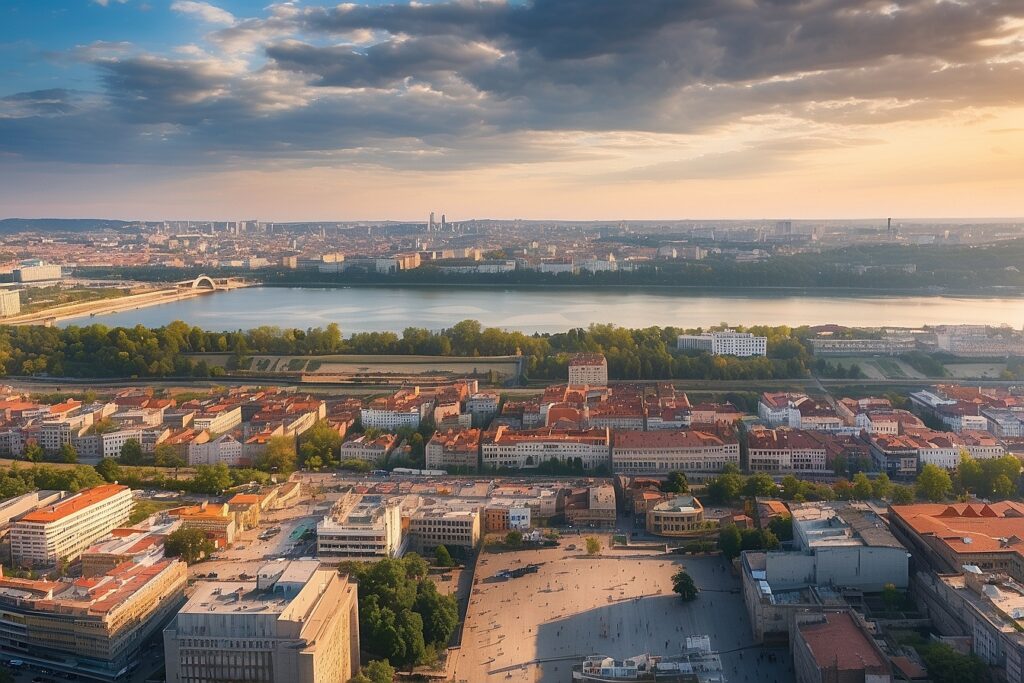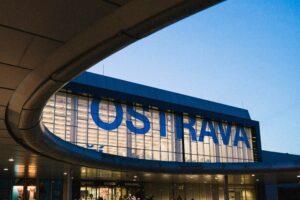
Serbia, and especially its capital city Belgrade, is increasingly garnering attention from investors eyeing opportunities in this region of Europe. In an exclusive interview with Jelena Radulović, Director of iO Partners for the Balkan region, we delve into the vast potential of these real estate markets, shedding light on what makes them particularly appealing to investors at large.
Analyzing the commercial real estate landscape in Belgrade and Serbia, it appears to be a sector characterized by stability yet ripe with untapped potential, particularly in segments where supply falls short of demand.
Unlike more mature Western European markets, the Serbian market lacks sufficient stock of class B business assets, representing an area where development opportunities await recognition and exploration by developers.
In the realm of office spaces, a notable trend is the burgeoning popularity of coworking spaces.
These spaces offer enhanced flexibility in lease terms, headcount management, mobility, and a conducive environment for focusing on core business objectives.
They cater not only to creative industries and startups but also to medium and large enterprises, particularly those embracing hybrid work arrangements for employees, a trend accentuated by the significant increase in commuting times observed in Belgrade over the past decade.
This shift towards coworking is evidenced by the establishment of over 13 large coworking centers in the Balkans region this year alone.
Despite the overall stability in rental prices within commercial buildings, there has been a noteworthy uptick of approximately 30 percent in service charge costs. This increase can be attributed primarily to inflationary pressures stemming from global inflation and the escalating challenges in commodities and energy markets worldwide.
Exploring the evolving landscape of business centers in Belgrade, we find three prominent office developments nearing completion across various city districts.
The Artklasa project, situated in the Port of Belgrade, the Brankov Business Center, a revitalization endeavor transforming an aging socialist-era building, and the BIGZ project, a monumental reconstruction led by renowned Yugoslav architect Dragiša Brašovan.
These ventures, while serving similar purposes, collectively contribute to Belgrade’s transformation into a contemporary business hub reminiscent of global metropolises like London, Prague, or Amsterdam.
A notable trend is the decentralization of business activities from the traditional Central Business District in New Belgrade to emerging districts such as Dedinje, Senjak, and even Cukarica. This shift reflects the growing demand from office occupiers seeking alternative locations throughout the city, fostering diversity and dispersion in Belgrade’s commercial landscape.
As a result, previously overlooked areas within the capital are gaining traction, offering compelling opportunities for both investors and tenants alike.
Analyzing the trajectory of the industrial market, it’s evident that Serbia occupies a strategically advantageous position within the real estate sector, particularly due to its non-membership in the EU. This unique status, coupled with a conducive business environment, underscores Serbia’s appeal for companies seeking to optimize operational costs while directing resources towards innovation and growth.
Of significant note are the central locations of Belgrade and Novi Sad, both pivotal hubs in this part of Europe. Their proximity to the Nikola Tesla Airport enhances their appeal as prime locations for industrial activities requiring efficient logistics. This is evidenced by the presence of industrial giants like the BHM Group, CTP industrial parks, and the newly established VGP industrial park in Dobanovci.
Forecasts indicate continued growth in the industrial segment, positioning it as one of the most stable business sectors. Efforts are underway to bolster the regional industrial and land sector, spearheaded by our colleague James Fitzgerald, presently stationed in Prague.
Furthermore, preparations are underway for the EXPO 27 project, a globally significant initiative poised to elevate Belgrade’s infrastructure and commercial landscape. This endeavor is poised to reinforce Belgrade’s strategic position among the region’s capital cities, further enhancing its appeal to investors and businesses alike.
In the realm of office space, several noteworthy trends are reshaping the landscape, both globally and domestically. While the proliferation of coworking spaces continues to gain traction, a significant transformation within the domestic market involves a heightened emphasis on sustainable initiatives by the real estate sector.
This shift towards sustainability manifests in various forms, with the industry investing substantially in green initiatives aimed at bolstering energy efficiency, achieving climate neutrality, and fostering social responsibility.
These efforts align with the overarching principles of Environmental, Social, and Governance (ESG) practices, which are increasingly integrated into business operations. Locally, this often translates to the pursuit of green certifications for buildings, underscoring a commitment to environmentally conscious practices.
Moreover, there’s a discernible surge in the deployment of eco-friendly features across commercial properties, including the installation of solar panels, the establishment of green gardens on rooftops, and the promotion of alternative modes of transportation. These endeavors not only contribute to reducing carbon footprints but also serve to enrich the fabric of local communities.
A standout illustration of these trends is exemplified by Project Artklasa, an innovative venture that places community engagement at its forefront. Situated in the heart of the city, Artklasa introduces a pioneering office space concept designed to foster collaboration and connectivity while prioritizing sustainability.
Furthermore, MPC Properties, a prominent domestic developer, merits special recognition for its role as a trailblazer in green building development within the local market. Through initiatives like these, the office leasing landscape continues to evolve, propelled by a collective commitment to sustainability and innovation.



